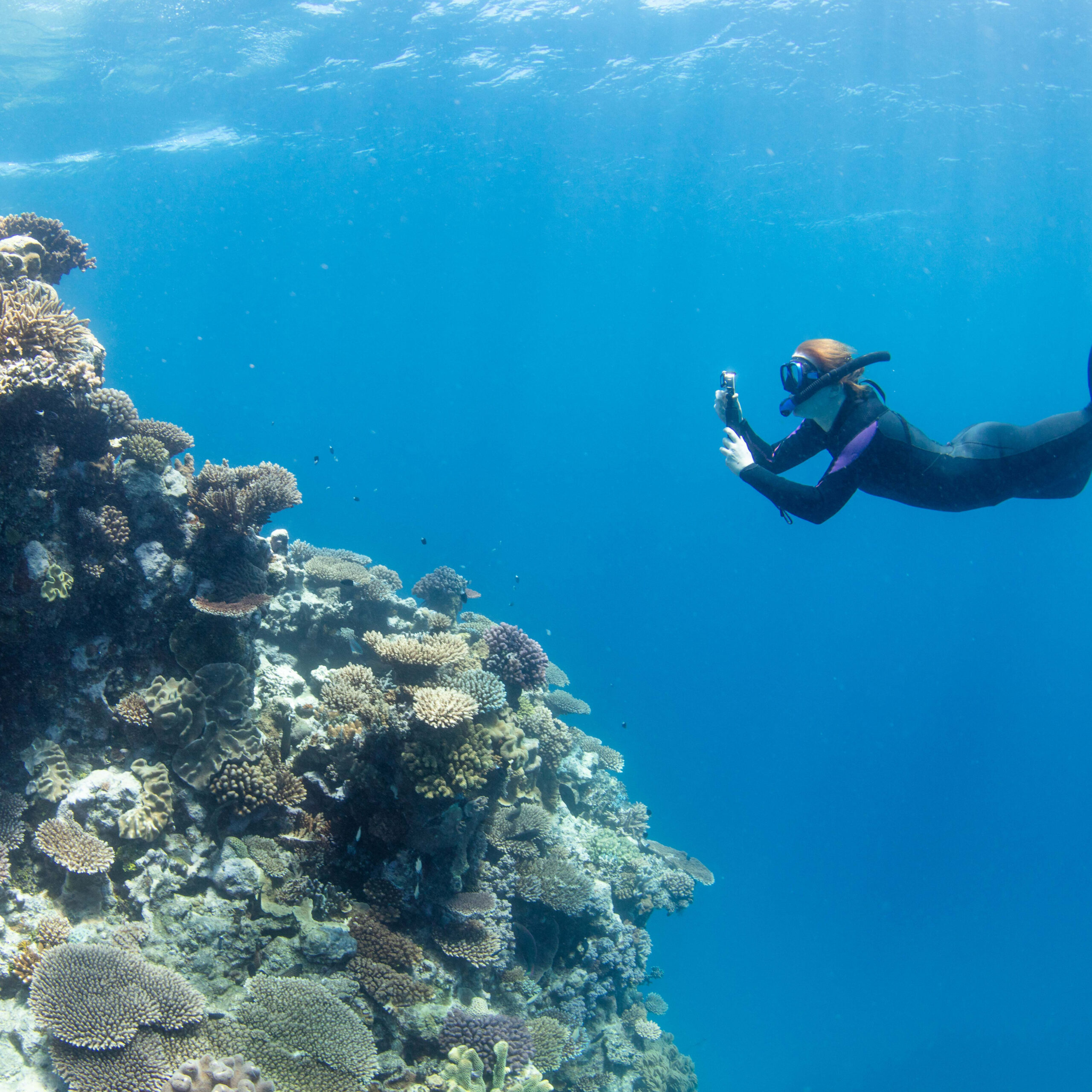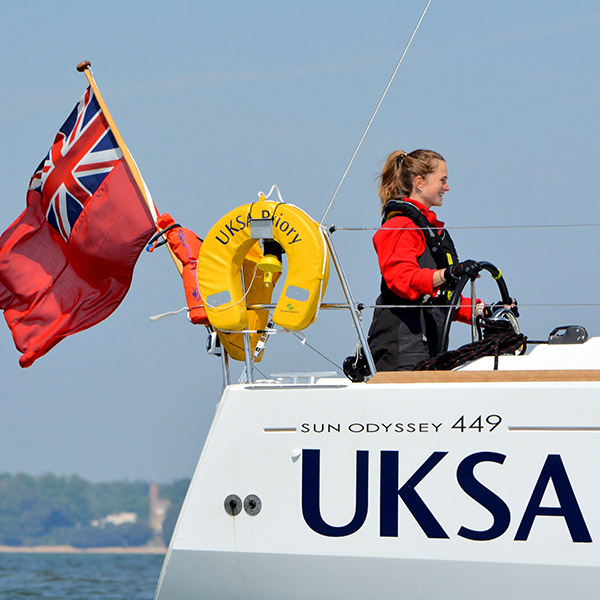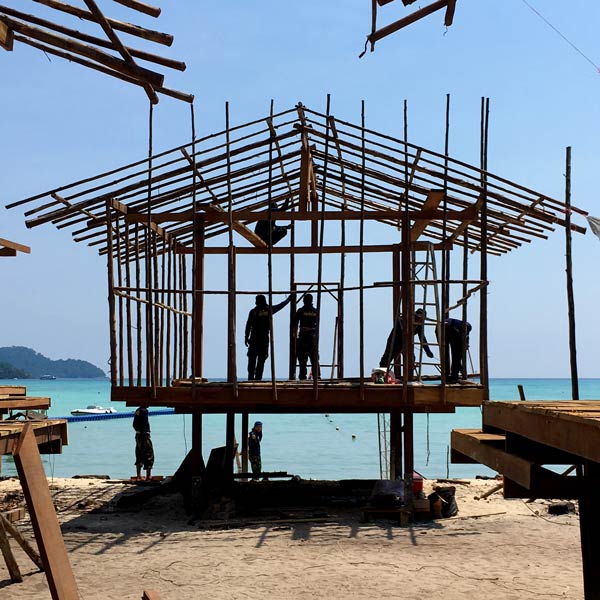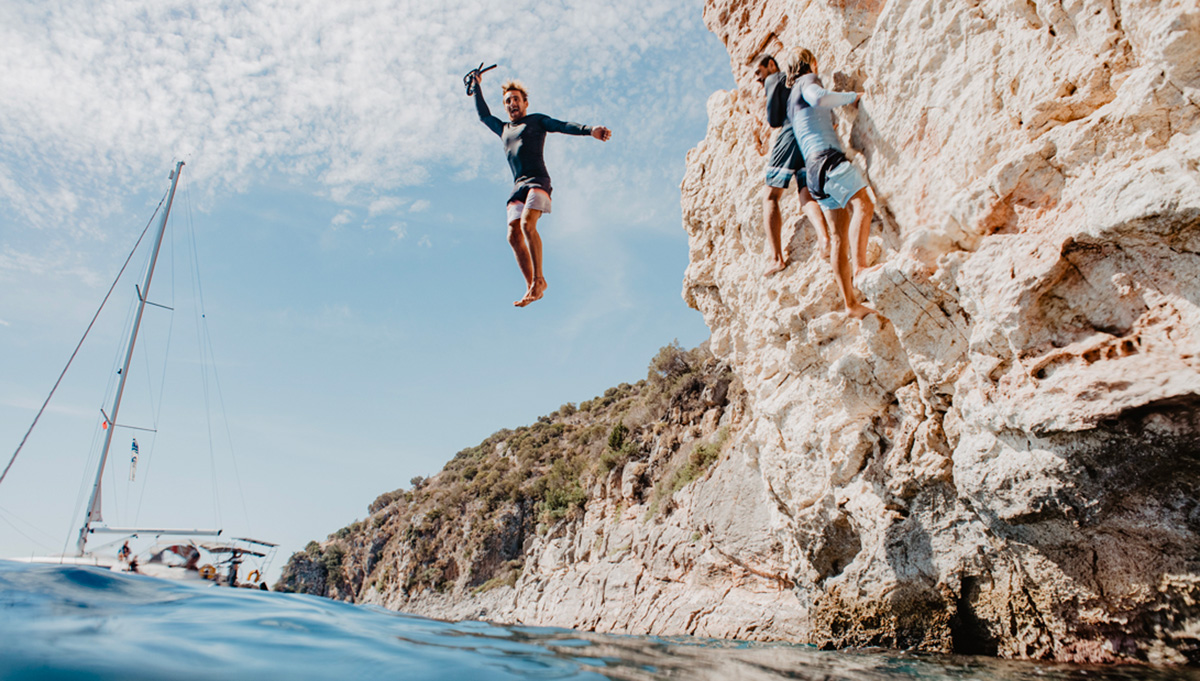
Photo:OceanR

Photo:OceanR
Pulling at eco-threads
With crew making up a considerable portion of the global superyacht workforce, their conscious and sustainable decisions are helping push the industry forward – and crew clothing is becoming a key part of that drive.
The arrival of the Sustainability Hub at the 2022 edition of the Monaco Yacht Show signalled a sign of the times for the superyacht industry. In establishing a standalone section that prioritises vetted sustainable solutions and eco-friendly projects, it shone a light on yachting companies that seek to inspire and enable others to lead more environmentally conscious lives. Companies like custom-designed eco apparel manufacturer, OceanR.
“We consider ourselves to be the sustainability specialists who operate at the active end of the yachting pipeline,” says founder, Tom Cotter. “If you’re a yacht with jet skis, paddle boards, submarines etc. and you need quick drying, UV-protected, sustainably manufactured crew wear, we’ve got it.” It’s a bold statement for a company that, in 2016, began life as a small Irish start-up producing rash vests. But in just six years, OceanR has transformed into an internationally recognised manufacturer of high-quality activewear made from recycled plastic, which in turn taps into the sensibilities of modern crews who are increasingly conscious about reducing their impact wherever possible.
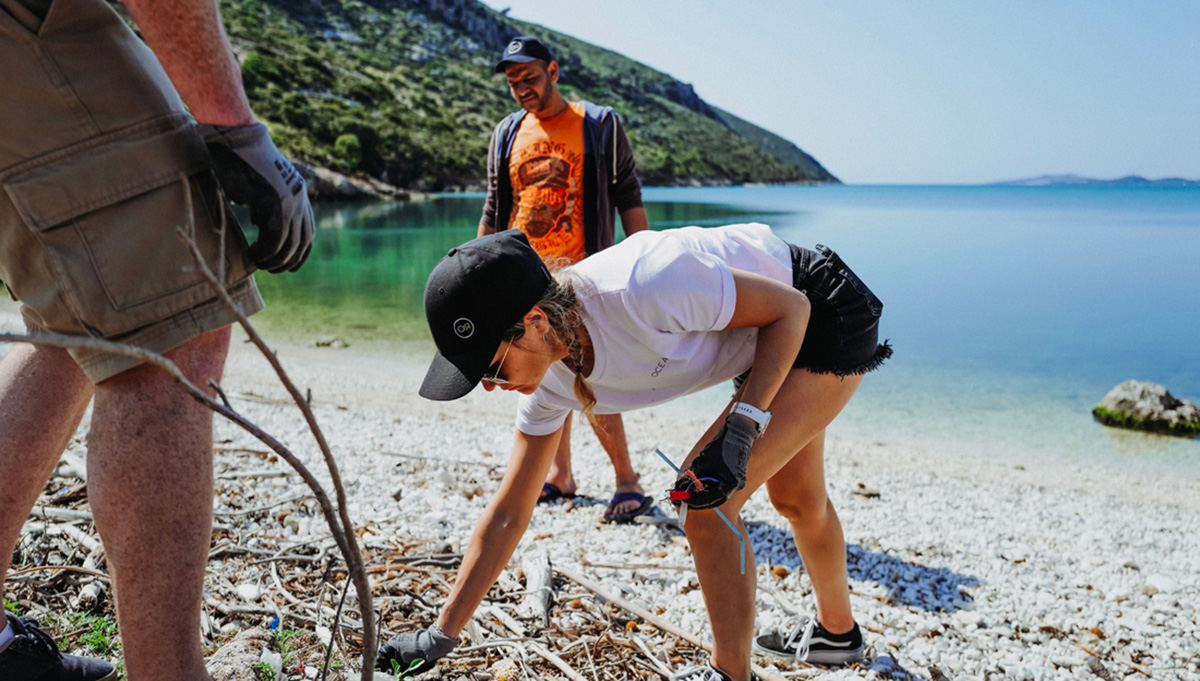
Photo:OceanR

Photo:OceanR
“The original aim was to create the world’s first eco-friendly rash vest,” says Cotter, who grew up in Cork, Ireland, and lived for five years in Melbourne, Australia. “The brand was called Rashr, and though it didn’t build into anything substantial, it helped us to prove the concept.” The turning point came in 2019 when the Australian Optimist Championships, which was promoting sustainability at the time, placed a large order for customised rash vests. “It significantly raised our profile and caught the attention of key yacht clubs. By the end of that year, we’d won the contract to supply Richard Branson’s Necker Island.”
Today, OceanR supplies crew attire to more than 20 superyachts, including 110 metre Kaos, 50 metre Endeavour and 77 metre expedition yacht Legend, as well as many of the world’s top private islands and resorts. For 88 metre Feadship Fountainhead, the bespoke range of polo shirts, tech-tees, board-shorts and safari hats all made with recycled polyester and with UVF50+ are just what is needed to protect the crew when working outdoors for long hours. Likewise, 73 metre Lunasea recently joined the growing raft of superyachts looking to customise its wet gear and move towards more eco-friendly options. But it’s not just crew clothing where superyachts are looking to make sustainable inroads. “We try to go for more sustainable options with everything that we source, from reef-safe sunscreens to fewer chemicals in the laundry and eliminating plastic bottles for guests,” says Justine Poulin, chief stewardess aboard Lunasea.
It’s a shared mindset made evident by the types of exhibitors on display at the Sustainability Hub. They included Hynova, the first shipyard to design and market day-boats using electro-hydrogen propulsion, SKF Marine, which produces oil-free, 100% electrically powered stabilisers, and Ecostore Ocean, which supplies environmentally sustainable cleaning and personal care products. “The superyacht industry is in a unique strategic position and blessed with extraordinarily influential clients who have the ability to drive sustainability and make a truly positive impact,” says Robert Van Tol, director of Water Revolution Foundation, which also exhibited at the Sustainability Hub and which served to vet prospective Sustainability Hub exhibitors.
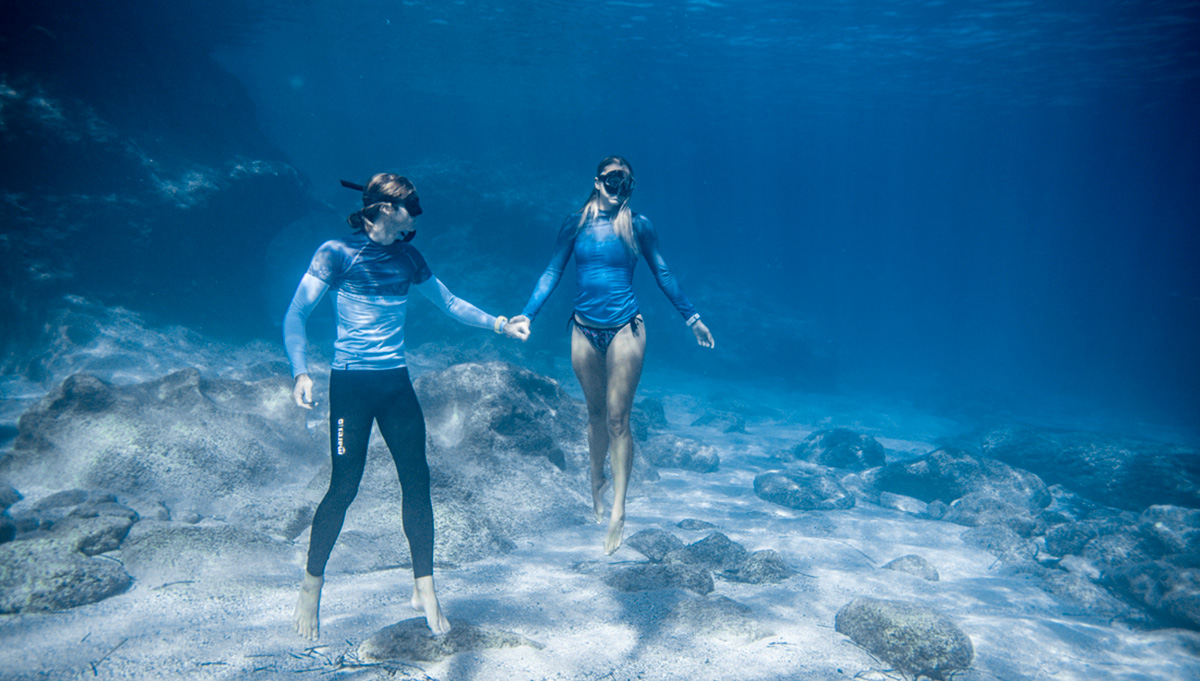
Photo:OceanR

Photo:OceanR
You only need to look at the meteoric rise of Patagonia, a manufacturer of upscale outdoor clothing known for its environmental sustainability efforts, to witness consumers’ appetite for change. And with tens of thousands of crew working in superyachting alone, the need for eco apparel that can be customized to match a yacht’s livery is something of a necessity. “The waste associated with the textile industry is of particular environmental concern, so being able to support a sustainable clothing brand is another step towards our taking eco-responsibility,” says Poulin.
OceanR’s core business is supplying sustainable activewear, but its relationship with yachts goes far beyond a mere commercial transaction. Staff and crew take a collaborative approach to facilitate and participate in regular beach clean-ups – the most recent held in Kefalonia, Greece – among other social impact projects. The brand also endeavours to support the companies it works with to be more sustainable, from reducing their carbon footprint to encouraging responsible consumption practices. “We run a ‘return, repair, recycle’ scheme, whereby we repair any returned items that require it,” says Cotter. “But the recycle element is the most interesting. If a yacht returns its unwanted crew uniform, we shred it and sell the shredded material to a car seat manufacturer in Latvia who uses it for stuffing.”
The circular initiative forms part of OceanR’s six pillars of sustainability. Recyclability, traceability and carbon neutrality make up the first three, alongside community and ocean health. One of its partners, a social start-up called Enaleia, works with 700 fishermen in 13 ports throughout Greece and Italy, cash incentivizing them to collect plastic instead of fish. “We collect more than 4,000kg of plastic from the bottom of the sea every week,” says Lefteris Arapakis, founder of Enaleia. “Our vision is to empower every fisher in the world to fish more sustainably and collect plastic from the sea.”
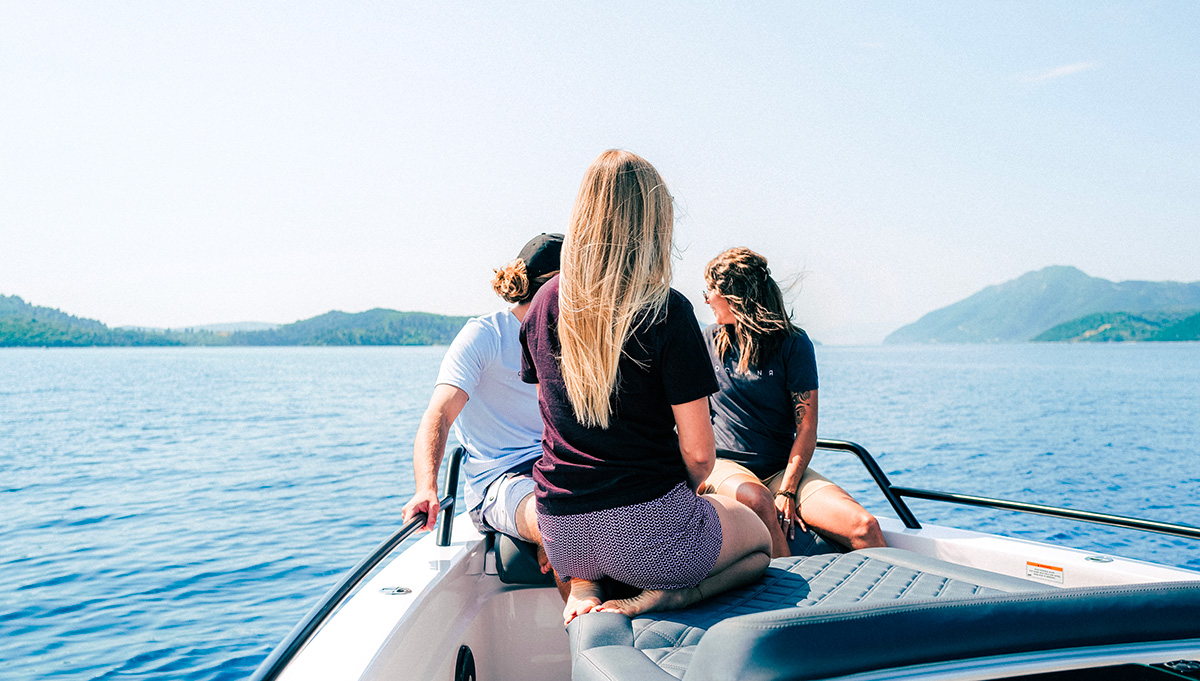
Photo:OceanR

Photo:OceanR
OceanR donated £35,000 to Enaleia in 2021, which roughly equates to the removal of 120 tons of plastic. “It means any yacht buying our product is directly contributing to cleaning up the Mediterranean,” offers Cotter, who cites the company’s sustainable production process as another area of best practice. In 2022, OceanR acquired the Latvian factory that manufactures its clothing, impressed by its great working conditions. “The 70 workers that we now employ are hugely loyal to the factory because the company culture is so good,” enthuses Cotter. “We’re trying to create a centre of manufacturing excellence and sustainability in Europe, and that needs to include an outstanding working environment for all.”
Cotter is proud of the company’s achievements to date but is equally candid about its limitations. “Our clothing is not fully ocean plastic, and I don’t think anyone can claim to be,” he says. “We use around 5% ocean plastic and supplement the rest with recycled plastic bottles. Ocean waste is so contaminated and degraded that it’s too low quality to use independently.” But with OceanR currently going through its B Corp certification, which approves companies that demonstrate high social and environmental performance, Cotter remains ambitious about where the company is headed. “We’re not closed loop production yet,” he says, “but we’re getting there.” It speaks to a changing mindset in superyachting as a whole, driven in part by owners but also championed and implemented by the superyacht crews themselves, who are using their position as a large and vocal cornerstone of the industry to inspire change within it.

